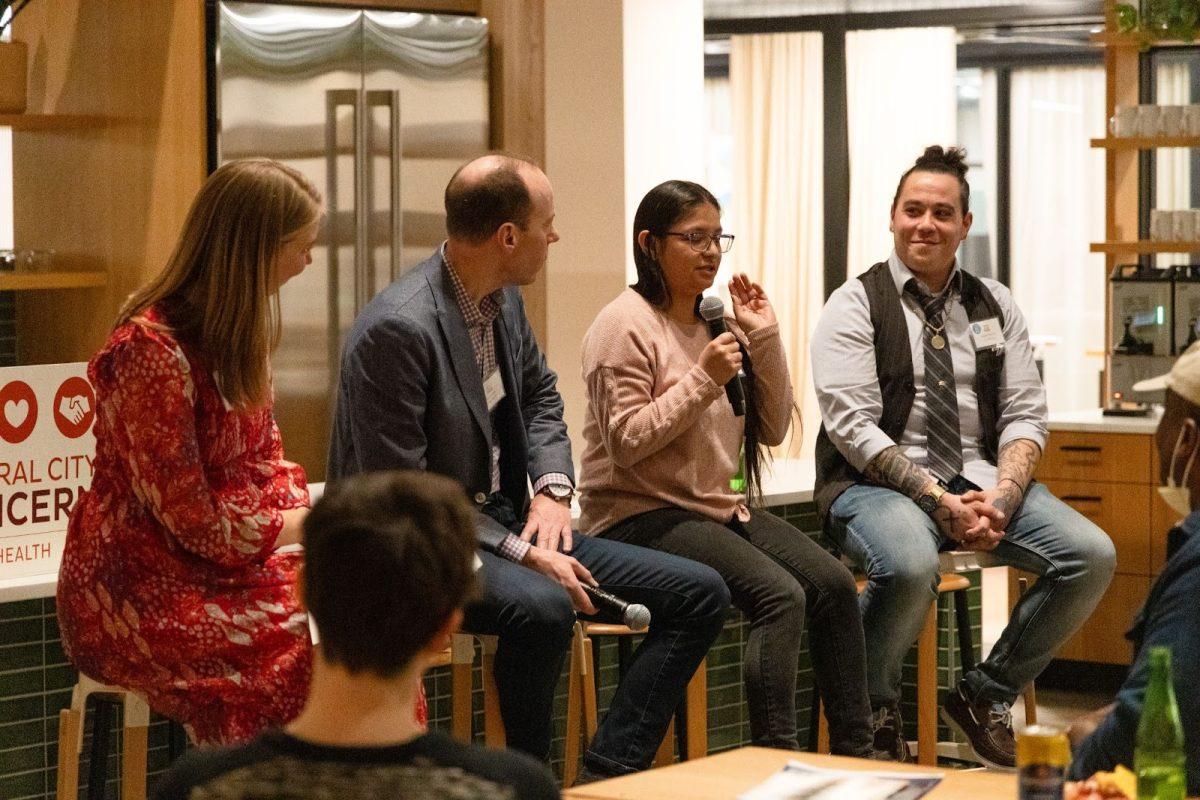
In the past decade, Portland has seen an increase in homelessness of around 65%, and at the same time, the city has spent nearly 2 billion dollars on affordable housing development and similar programs. Despite these efforts, long waiting lists for individuals who are seeking affordable housing persist. For the past 45 years, Central City Concern (CCC), a non-profit organization located and run in Portland, has taken another approach to end homelessness, offering extensive opportunities to achieve self-sufficiency, specifically through employment.
According to CCC’s website, “[CCC is] ending homelessness by treating the whole person, as a person. Each year, more than 13,000 people turn to us for compassionate support to become self-sufficient and productive.” Each client has unique needs, so CCC offers three programs to guide them along their employment preparedness pathways.
CCC participants have the opportunity to work with community volunteer corps to build soft skills and promote self and community improvement. The skills they learn allow them to more easily rejoin the workforce and community. This serves about 400 people annually, usually those who are fresh out of CCC’s detoxification center. The detoxification center offers substance use treatment through various recovery services such as primary care, recovery groups, and even one-on-one counseling and peer support; this way clients have a choice in their path to recovery.
From there, clients are referred to the employment access center (EAC), staffed by employment specialists such as Angelo Polvorosa, pictured above furthest to the right. This is where one-on-one services are implemented and specialists begin helping formerly homeless clients to compete for living-wage jobs. Polvorosa, when speaking at CCC’s recent panel discussion, shared that CCC’s EAC “services are referral-based, but there’s not a single person that doesn’t walk through that door that doesn’t get an answer or pointed in the direction for the right answer.”
Finally, CCC’s social enterprises provide low-barrier employment options that provide living-wage jobs, converge community needs, and build clients’ resumes and work histories. These social enterprises are financially viable which enables CCC to carry out its mission successfully. Clean Start and Central City Staffing are two of the most prominent, which employ graduates of CCC’s programs and ultimately reinvest profits back into CCC’s programs.
Just recently, CCC launched their new three-year plan; in a three-part conversation series called “Inside the Mission,” they announced their transition into this approach. The event hosted leaders, experts, partners, and community members who will play significant roles in launching this new effort. Their overall aim is straightforward: to end homelessness and guarantee a future for all Oregonians that will be healthier, more equitable, and even more resilient.
At the most recent event, four panelists spoke, including Polvorosa; CCC’s Director of Development Dana Kleinhesselink; CCC’s Vice President and Chief Strategy Officer Sean Hubert; and finally a CCC partner, Andrea Sepulveda. At this event, the four discussed the capacity for employment to promote access to opportunity, stability, and rehabilitation.
A common theme of their discussion was that, yes, housing is fundamental, but it does not develop the social skills our society relies on. Hubert had much to say about employment as a constructive social intervention to homelessness: “It increases someone’s housing stability, it reduces social isolation, and improves socialization. It has positive impacts on health and wellbeing … in mental health very specifically. And for people with a substance use disorder, it improves recovery engagement and reduces the chance of relapse.”
There were three specific matters the group tackled. The first being that employment is one of the most effective interventions that one can make in homelessness. The second was that employment is also one of the most cost-effective interventions. Hubert explained, “The average cost to get someone into employment, it’s $3,000 to $5,000. That’s about half of what we spend just to shelter somebody for a single month.” Finally, they addressed that of the homeless programs that contributors fund, employment is the least funded solution. CCC’s approach places a large emphasis on these factors, highlighting how much more employment does for one attempting to get out of homelessness than most other interventions.
Although two of the four panelists were higher-ups, CCC provided various perspectives as both Polvorosa and Sepulveda were homeless at one point. However, after going through CCC’s programs they got out of homelessness and received jobs through CCC. Polvorosa opened up about his experience, stating he “didn’t want to go meet with somebody that could help me put a resume together, things that I could do myself … I had an employment specialist, I had a parent mentor, I had a housing specialist, I had my case manager, and I had my counselor.” The amount of specialists CCC offers creates various paths out of homelessness. “In the long run, I was really scared, I was really worried, and I didn’t think [CCC] could help me at all. Now as I meet folks, I try to keep that in mind and try to [help them] realize [that] I’m not [their] probation officer.” Working for CCC, Polvorosa can pay forward the services that helped him, changing and saving other people’s lives.
Kleinhesselink introduced an interesting analogy regarding CCC’s funding: “I can buy you a textbook with this money that we have from the government, but I actually can’t hire you a tutor even though I have thousands of dollars to buy textbooks, the eligible expense is not tutoring.” One key component of all of this is the flexibility to use the money where it will truly be most useful, and that freedom is not necessarily granted to CCC.
Sepulveda, a branch manager at a second chance employment company, who partners with CCC and other non-profit organizations, referenced her own lived experience when working with clients who were referred to her via CCC. A second chance employment company works with non-profit organizations such as CCC, which refers them to people who are ready to rejoin the workforce after coming out of homelessness. When clients tell Sepulveda they don’t want to fall back into homelessness or fall backwards, she responds, “Let’s look forward, we’re not even going to think backward. Where are your skills? Where can you develop them, and where can you go in this career path? [You] start at the bottom and you work your way up … I’ve been homeless; it sucks. It’s something that doesn’t make you feel the greatest or make you feel important.” Ultimately, through working as a second chance employer herself, Sepulveda has noticed a wonderful recurring theme among her employees: “When it comes down to it, some of our second chance employees are some of the most motivated individuals that we have, just to be better and be different than the way they were before.”
In all, Central City Concern is changing up the method of tackling the homelessness crisis within Portland, and hopefully, other organizations will follow in their footsteps, as employment seems to be a long-lasting and effective approach with the most positive outcomes for clients.



































